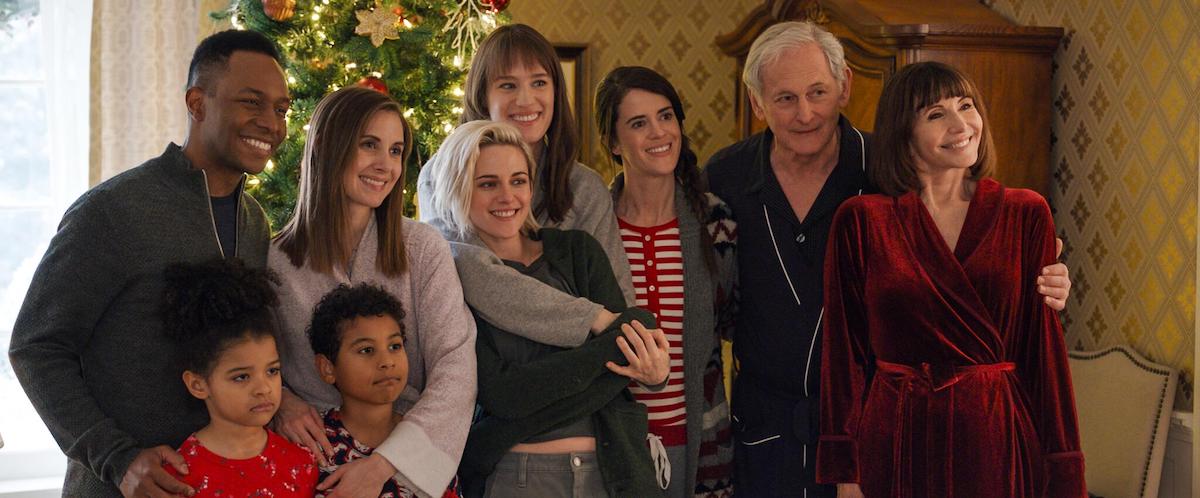Happiest Season is an overqualified Lifetime Movie. I admire what Clea Duvall is trying to do for representation at Christmas. That’s probably how she got Kristen Stewart, Mackenzie Davis, Alison Brie, and a host of other great actors to sign up for her film. Hey, power to you Clea, cause they help elevate your so-so material into something almost special, and maybe have made a new holiday classic for the LGBTQ crowd.
Abby (Kristen Stewart) and Harper (Mackenzie Davis) are a loving, lesbian couple enjoying Christmas lights in Pittsburgh. Overcome with happiness, Harper invites Abby over to her mom and dad’s (Mary Steenburgen and Victor Garber) house for the holidays. Abby reluctantly agrees, but immediately regrets her decision on the drive over, because Harper informs Abby that she hasn’t mustered the courage to come out to her conservative family. This obviously draws red flags to Abby’s Gay BFF John (Dan Levy), which start to build one upon another as Abby watches Harper dip into her old, repressed life.
I sort of get what Clea Duvall is going for here. In an effort to make Happiest Season a classic for everyone, she puts an LGBTQ couple at the Center of a well known Christmas tale: the trip to the family home. You can feel the push and pull of different forces on this tale. Take the superior casting for example. It’s a blessing for sure: Alison Brie’s character is a recipe for disaster if she doesn’t make the character something much more interesting with her acting talent. However, that sort of elevated acting maybe put demands on this script to be something much bigger than it was perhaps meant to be. Thankfully, Duvall finds one really resonant emotional catharsis in the third act, proving you can find something relatively deep inside the cotton candy fluff. However, that catharsis comes at the expense of what should have been more wacky hijinks and shenanigans, mostly relegated to the amusing looniness of Mary Holland and especially Dan Levy, in his own, bizarre world. In short, the fight forces characters into different sides, with Kristen Stewart and Mackenzie Davis stuck in the middle of both films, trying to navigate the tonal shifts. Those inconsistencies leave characters (Aubrey Plaza) and subplots (the Brie family dynamics) underexplored, but with enough of a taste to make us want a little more, and maybe one more pass through the script.
Oh well, 2 steps forward, 1 step back in the arc of the moral universe. It is lovely to see so much commonality in a Christmas tale that isn’t often told, showing just how lovely and normal any LGBTQ relationship is compared to any other. I hoped the tale would be a revelation, but instead I guess we’ll settle giving LGBTQ representation to mediocre Christmas movies in attempts to pander to the holiday season. Yay consumerism! Yay streaming wars!

